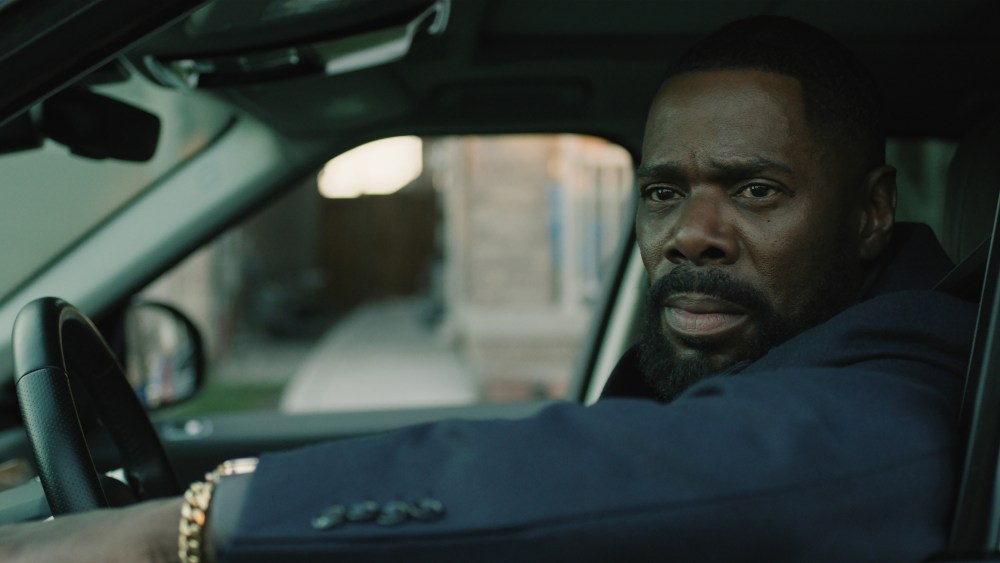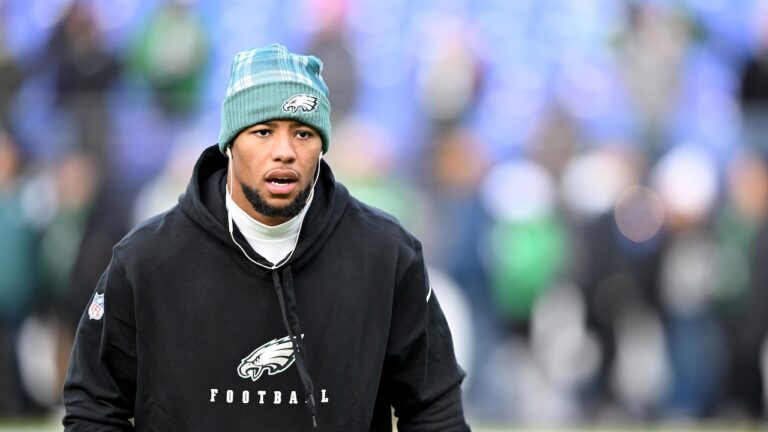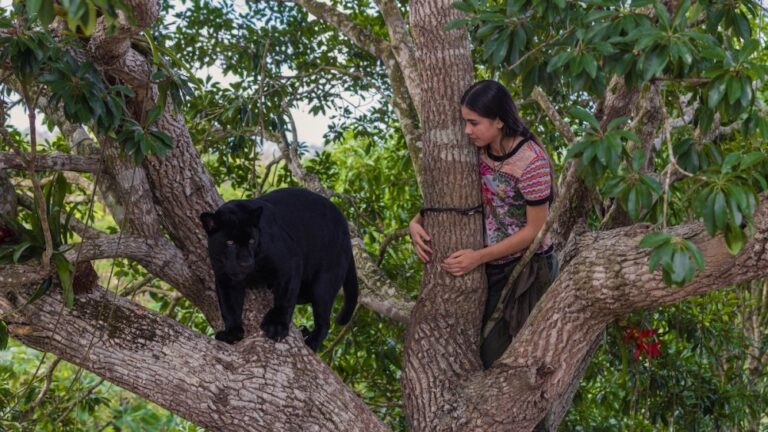A project like “The Madness” ought to be a feather in the cap of someone like Colman Domingo. Though the performer has been working steadily for decades, a few years’ worth of increasingly prominent roles — in “Euphoria,” “Zola” and “If Beale Street Could Talk,” among others — has culminated in milestone moments like an Oscar nomination (for “Rustin”), a potential second on the way (for “Sing Sing”) and a spot on the cover of this very magazine. And because limited series are now part of the routine for A-list actors, the eight-part Netflix thriller should help cement Domingo’s status as he once again hits the awards trail.
There’s just one problem: while Domingo acquits himself just fine as an increasingly frenzied man on the lam, “The Madness” itself is a schlocky mess, its pulpy appeal dimmed by a drawn-out runtime and attempts at social commentary that fail to find their mark.
Domingo stars as Muncie Daniels, a CNN commentator (somehow, the network is invoked by both name and logo) who rents a cabin in the Poconos only to find the next-door neighbor chopped to bits in his sauna. That neighbor turns out to be an infamous white nationalist, and despite reporting both the body and the apparent killers who chased him through the woods to the local authorities, Muncie’s “BLM ties” quickly make him a prime suspect.
Everything about “The Madness” is haphazardly fleshed out, from Muncie’s political background to the roots of his fraying marriage to the various antagonists who appear out of the ether during his quest to figure out who’s likely framing him for murder. A single on-air exchange with a guest establishes that Muncie used to be more of a boots-on-the-ground activist before pivoting into punditry, but there are few details about his actual cause or advocacy. He’s then launched into fight-or-flight mode, with few opportunities to clarify the haziness and better frame Muncie’s trajectory. “The Madness” vaguely positions his plight as a forced reconnection with what should really matter to him, from an estranged daughter (Gabrielle Graham) to his radical father’s former compatriots. Without a stronger understanding of his starting point, though, it’s a futile effort.
Created by playwright Stephen Belber and largely directed by Clément Virgo, “The Madness” can’t keep focused long enough to make a point. Pitting a Black liberal against a dangerous group of white supremacists is an intriguing setup for a classic potboiler with contemporary themes. (Think of Jeremy Saulnier’s Netflix hit “Rebel Ridge,” a “First Blood”-style outlaw story about modern policing.) But for the sake of twists and filling out a full season, “The Madness” switches out Muncie’s adversaries too often to make any of them truly menacing. First, neo-Nazis; then, in a jarring implied equivalence, armed antifa types; then a generically evil corporation and its enforcers. The random, sudden change-ups make Muncie’s investigation, often in partnership with a friendly FBI agent (John Ortiz), feel devoid of stakes.
Sometimes, “The Madness” is so plainly ludicrous that its hyperactive plotting can flirt with campy fun. Muncie has to track down an antifa militant, whom he’s told hangs out at a swinger bar (the type of establishment that definitely exists, and counts extreme leftists among its clientele), so he convinces his soon-to-be-ex wife (Marsha Stephanie Blake) to case the joint in broad daylight. The setup is just elaborate enough to make you throw up your hands and say “Sure!” Besides Domingo, “The Madness” also boasts a supporting cast stacked enough you’re just happy to see them, no matter the circumstances: Stephen McKinley Henderson, Bradley Whitford and Alison Wright all make welcome appearances, even if they deserve stronger material.
Domingo does make use of “The Madness” to show his range, making Muncie a cornered animal whose panic gradually gives way to reckless determination. Muncie nonetheless remains more of a mode than a fully realized person, with little to define himself either proactively or against. Overall, “The Madness” feels like a box checked on a deservedly growing CV — Domingo’s first time at the top of a TV call sheet, but nowhere near becoming one of his signature roles.
All eight episodes of “The Madness” are now streaming on Netflix.













